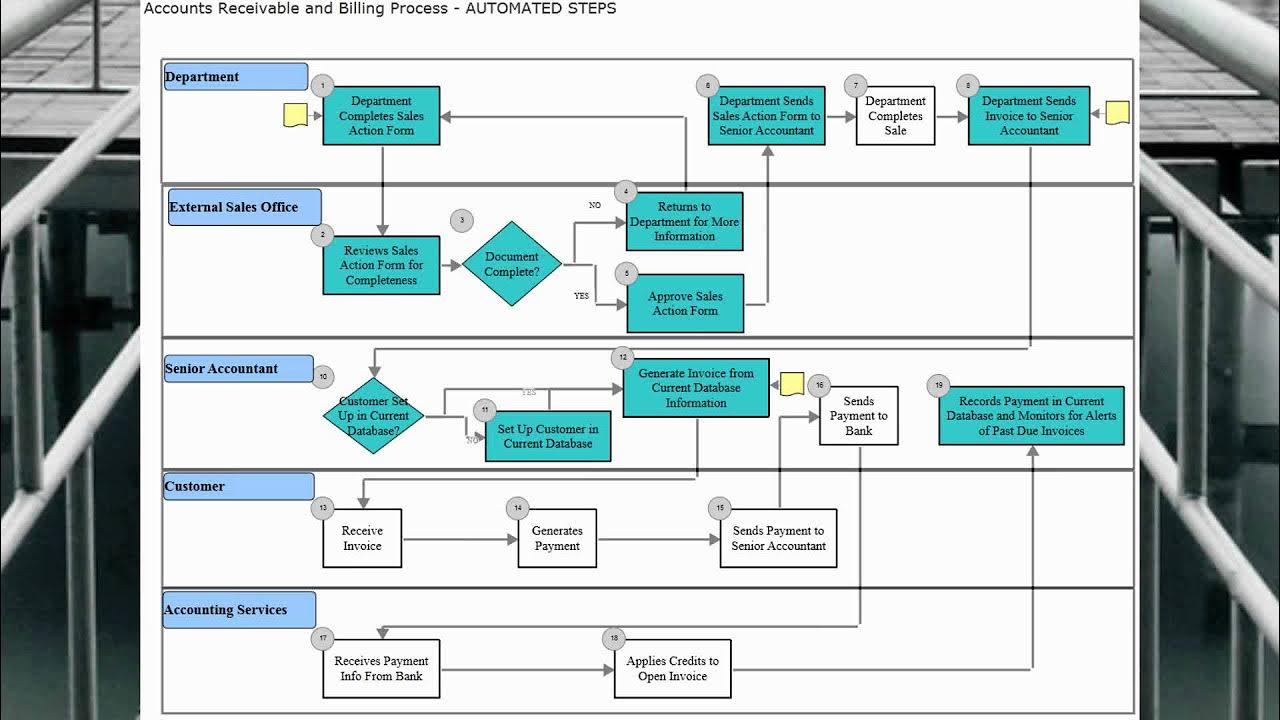ERP Implementation Plan: 6 Key Phases for Success
Summary
TLDRImplementing an ERP system is a complex yet essential process that spans six phases. It begins with discovery and planning, followed by designing workflows and analyzing impacts. The third phase focuses on system development, including configuration, data migration, and integration. Phase four involves rigorous testing and user training, leading to deployment in phase five, where troubleshooting and user support are key. The final phase ensures ongoing support and system updates. This structured approach helps ensure a smooth transition, maximizing the ERP system's effectiveness and user adoption.
Takeaways
- 😀 ERP implementation is a complex process that impacts many areas of a business.
- 😀 A well-designed implementation plan is crucial for the success of an ERP project.
- 😀 Dividing the implementation into six phases can help ensure a smoother transition.
- 😀 Phase one focuses on discovery and planning, which includes defining system requirements and building a project team.
- 😀 Phase two involves the design stage, where existing workflows and business processes are analyzed for ERP impact.
- 😀 Phase three is the development phase, which includes configuring the software, migrating data, and setting up integrations.
- 😀 Phase four is dedicated to testing, including validating migrated data and providing initial end-user training.
- 😀 Phase five is the deployment stage, where the ERP goes live and troubleshooting is essential for user acclimation.
- 😀 The final phase focuses on support and updates, gathering user feedback and making necessary adjustments.
- 😀 Organizing the ERP implementation into distinct phases helps ensure a more successful transition and boosts team confidence.
- 😀 Clear objectives for each phase are key to fully leveraging the capabilities of the new ERP system.
Q & A
What is the first phase of an ERP implementation?
-The first phase of an ERP implementation is the discovery and planning phase. This phase involves defining system requirements, researching and selecting the solution, and developing a cross-functional project team.
Why is the design phase important in an ERP implementation?
-The design phase is crucial because it involves analyzing existing workflows, business processes, and data to understand the impact of the new ERP system on the business. This helps ensure the system aligns with the organization’s needs.
What activities are involved in the development phase of ERP implementation?
-The development phase includes software configuration, data migration, customization, and integrating the ERP system with other business applications that are not replaced by the ERP.
What is the focus during the testing phase of ERP implementation?
-During the testing phase, the focus is on fully testing all the capabilities of the new ERP system. Additionally, migrated data must be validated, and introductory training for end users should begin.
What should be expected during the deployment (go-live) stage of an ERP system?
-During the deployment stage, the system goes live. It’s important to be prepared to troubleshoot and address any issues that arise, as well as assist users in adjusting to the new system.
What is the focus of the final phase in ERP implementation?
-The final phase of ERP implementation focuses on support and updates. This phase involves listening to user feedback, addressing any concerns, and making adjustments to the system to ensure its continued effectiveness.
How does dividing ERP implementation into phases benefit the process?
-Dividing ERP implementation into phases provides a clear structure for the project, with defined objectives for each stage. This approach ensures a smoother transition, helps mitigate risks, and provides the team with confidence in utilizing the system.
What role does cross-functional teamwork play in ERP implementation?
-Cross-functional teamwork is essential in ERP implementation as it brings together various perspectives from different departments. This collaboration ensures the system meets the needs of the entire organization and facilitates smoother integration of the system into everyday operations.
Why is it important to validate migrated data during the testing phase?
-Validating migrated data during the testing phase is crucial to ensure that the information has been accurately transferred from the old system to the new ERP system. This step helps prevent errors and data discrepancies that could affect business operations.
How does user training fit into the ERP implementation process?
-User training is integrated into the testing phase as an introductory step. This early training helps users become familiar with the system before it goes live, reducing resistance and improving system adoption when it is fully deployed.
Outlines

此内容仅限付费用户访问。 请升级后访问。
立即升级Mindmap

此内容仅限付费用户访问。 请升级后访问。
立即升级Keywords

此内容仅限付费用户访问。 请升级后访问。
立即升级Highlights

此内容仅限付费用户访问。 请升级后访问。
立即升级Transcripts

此内容仅限付费用户访问。 请升级后访问。
立即升级5.0 / 5 (0 votes)






